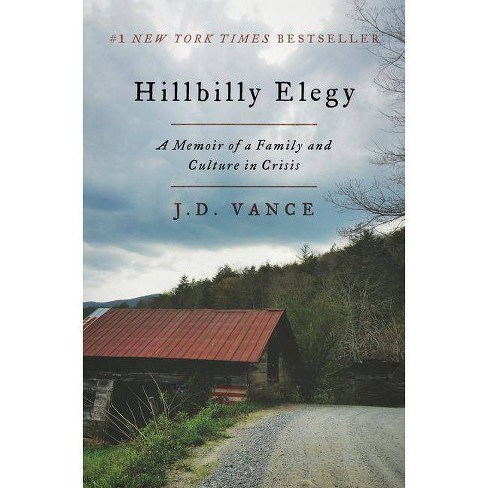J.D. Vance makes it quite clear that he comes from a long line of lunatics.
One great-uncle, after being called a "son of a bitch" by a delivery driver, beat the man senseless and cut him up with an electric saw (the driver lived, though it was close). Another uncle, taking an umbrage at a remark aimed at his sister, forced a man to eat a pair of girls underwear. At gunpoint.
Vance's grandmother, who he called Mamaw, once was so fed up with her husband's drinking that she poured gasoline on him and lit him on fire (he survived). Mamaw (pronounced "Ma'am-aw") commonly backed up her bad temper with a loaded gun in her hand.
"Mamaw came from a family that would shoot at you rather than argue with you," Vance writes in his 2016 book "Hillbilly Elegy."
But it was this same extended family who rescued Vance from a turbulent childhood. His father abandoned him early on, and his mother wrestled with depression and drug addiction. It seemed that Vance, like so many other children of Appalachia, would be trapped in the poverty of the southern Ohio town he grew up in.
But thanks largely to Mamaw -- as well as his grandfather and older sister -- Vance not only persevered but excelled. After high school, he spent four years in the Marines, then graduated from Ohio State University and, eventually, Yale Law School.
"Thinking about it now, about how close I was to the abyss, gives me chills. I am one lucky son of a bitch," Vance writes.
It seems a bit premature to write a memoir when you're only in your mid-30s, but I'm glad Vance did. "Hillbilly Elegy" is a fascinating story of an unconventional upbringing and a remarkable example of human perseverance.
If you liked "The Glass Castle," by Jeannette Walls and "Educated" by Tara Westover, you'll like "Hillbilly Elegy." In each, the author shows amazing resilience amid a dysfunctional environment that most of us would have trouble imagining.
At one point, for instance, Vance recalls what he learned from his Mom and a stepfather (one of many he had) in "marital conflict resolution":
Here were the takeaways: Never speak at a reasonable volume when screaming will do; if the fight gets a little too intense, it's okay to slap and punch, so long as the man doesn't hit first; always express your feelings in a way that's insulting and hurtful to your partner; if all else fails, take the kids and the dog to a local motel, and don't tell your spouse where to find you.
The book is not perfect. The story occasionally clunks to a halt when Vance suddenly shifts from compelling memoir to stuffy op-ed, citing academic studies or dry statistics to illustrate the problems of Appalachia. A chapter on how the closing of Midwest factories has devastated small towns might have been a revealing read — in 1992.
I also wish Vance had included more on his stint in the Marines. He went to Iraq, but barely says anything about it.
Even with those flaws, the book is worth a read. While Vance did make it out of a difficult atmosphere, there are scores more young people who's hopes and dreams are crused by poverty, dysfunctional families and drug use. He emphasizes that the solutions must come from within those communities.
He concludes: "We hillbillies must wake the hell up."

No comments:
Post a Comment